Search results
Family Tree Webinar News
June 18, 2012 by ramona
Filed under Articles, Latest News
 Are you yearning to discover the details about the newest genealogy technology or become skilled at digging up old records?
Are you yearning to discover the details about the newest genealogy technology or become skilled at digging up old records?
June is jam packed with great webinars for family tree enthusiasts. Whether you are a beginning genealogist or seasoned professional, you are going to love this month’s line up of webinars across the net.
June Webinars:
|
Date/ Time |
Subject |
Website/ REGISTER: |
| June 2021:00 – 22:00 | Genealogy Hacks: Tricks to Crack the Top Genealogy Web SitesWith Rick Crume | REGISTER: https://www1.gotomeeting.com/register/586250704 |
| June 2014:00 – 15:30 | Marriages and Anniversaries. Mining newspapers for engagements, marriages, anniversaries, and divorce records.With Thomas J. Kemp | Legacy Family Tree |
| June 2114:00 – 15:30 | Mapping Your Ancestors’ FootstepsWith Kathryn Lake Hogan | https://www3.gotomeeting.com/register/415630494 |
| June 2214:00 – 15:30 | Staying Safe with Social Media.With Thomas MacEntee | Legacy Family Tree |
| June 2521:00 – 22:30 | WordPress Part 2: Dissecting the DashboardWith Taneya Koonce | REGISTER: https://www1.gotomeeting.com/register/547184313 |
| June 2714:00 – 15:30 | Digital Images for Genealogists and Technologists: scanning, digitizing, editing, and preserving your photos.With Geoff Rasmussen | Legacy Family Tree |
Before you sign on remember to:
· Check that you have all of the system requirements
· Register (if needed)
· Download any required software
· Mute your Mic
· Log in Early
After you have been inspired and motivated check back with Genealogy Beginner and make sure, you are stocked up on Family Tree Charts and Research Tracking forms.
Available with your Genealogy Beginner Starter Kit when you register for a 30 Day Free Trial.
Black Sheep Ancestors
May 11, 2012 by ramona
Filed under Articles, Genealogy Research Resources, Latest News, Sharing Genealogy Information
 Pirates, Outlaws and Ne’er do wells; it would be uncommon to research any family tree without finding at least one skeleton in the closet.
Pirates, Outlaws and Ne’er do wells; it would be uncommon to research any family tree without finding at least one skeleton in the closet.
Ancestors with a criminal record can range from unfortunate debtors who paid a price for being poor to thieves and pickpockets or even those executed for murder. Although none of us wants to find we descended from a cold-blooded killer, having a rogue in the family tree does add a little excitement.
Throughout history there have been criminals and alongside them court systems and institutions for dealing with them. With prisons and courts come the records they generate and those records are a wonderful resource for genealogists and family historians looking for a missing ancestor.
Information found in court and prison records can include the accused or inmate’s next of kin, name and age. Whether or not they could read, their trade, the reason they were in trouble and the sentence they received for their crime.
Finding Criminals Past
Blacksheep Ancestors is a free genealogy site filled with prison lists and court records that encompass Great Britain, Canada and the US.
One fantastic and free searchable list is The Proceedings of the Old Bailey, 1674-1913, which has a fully searchable database that contains 197,745 criminal trials from London’s central criminal court.
The site also has links to the biographies of petty and master criminals alike where you can read the stories about:
- Catherine Hayes, who in 1725 conspired with her lovers to kill her husband and was tried, convicted and executed for her crime.
- The Fourth Earl Shirley, Laurence Ferrers, who was the last peer of the realm convicted as a common criminal and hanged
- Eliza Fenning, a young cook who was found guilty of the attempted murder of her employers by poisoning their food. Up until the moment Eliza was put to death, she claimed her innocence.
Whether you have an ancestor who was a minor miscreant or someone with an infamous criminal past, Blacksheep Ancestors is a fascinating genealogy website dedicated to helping you trace the romantic rogues and villainous scoundrels in your ancestral line. Share your Black sheep story on Genealogy in General.
Find Your Ancestors in Almanacs
April 1, 2012 by ramona
Filed under Articles, Genealogy Research Resources, Latest News, Sharing Genealogy Information
 Almanacs can be a great resource for genealogists and family historians. Along with weather predictions, advice for farmers and statistical information almanacs can contain tit bits of information about your ancestors that are not found in vital events documents or census. Additionally almanacs can give wonderful ephemeral information to round out your family history story and fill in your family template. Gutenberg printed the very first almanac in 1457 in Mentz, Germany and their use spread to almost every country by the 1600s. By the 1800s, it was possible to find yearly almanacs for nearly every county in Great Britain.
Almanacs can be a great resource for genealogists and family historians. Along with weather predictions, advice for farmers and statistical information almanacs can contain tit bits of information about your ancestors that are not found in vital events documents or census. Additionally almanacs can give wonderful ephemeral information to round out your family history story and fill in your family template. Gutenberg printed the very first almanac in 1457 in Mentz, Germany and their use spread to almost every country by the 1600s. By the 1800s, it was possible to find yearly almanacs for nearly every county in Great Britain.
The best way to demonstrate what a great resource an almanac can be is by looking in one for information. For this purpose “Peace’s Orkney Almanac and County Directory, 1886” gives us a great example of genealogical and family history information that.
The Family History Element
Within the front and back pages of the almanac, there is a wide range of advertisements that present a window into your ancestor’s daily lives.
From these advertising pages, we get a glimpse at the fashions of the times, modes of travel, an idea of how they may have approached emigrating to a new land and even some insight into daily chores.

Almanacs and Genealogy
An almanac contains a wealth of information in the trades sections. From listings of “Inspectors of the Poor” to a list of “Registrars of Births, Marriages and Deaths” that can be very helpful in pinpointing those questionable dates. Looking at this entry, we can see the timelines given to register any vital events.

Almanacs can also be used to help you find resources for records. Peaces Orkney and Shetland Almanac names all of the churches, clergy, schools and teachers in the county. It also gives the names of newspapers that were published at the time along with groups, society’s guilds and clubs, which are all fantastic sources of information for family tree research.
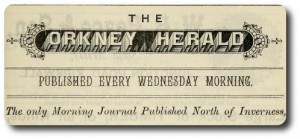
Additionally, it is common for almanacs to break up the directory listings by parish where you may find information that is more specific to your ancestor. Flipping to the directory for Sanday we find out that Peter Sinclair is listed as a member of the Parochial Board as well as a member of the School Board, which suggests he was an active member of his community. Not information found in a census, in fact almanacs are probably the number one place to look if you are searching for clues about your ancestors between census years.
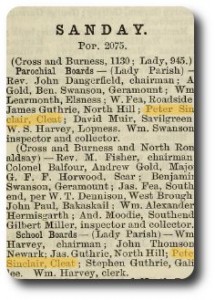
In this particular issue, we get lucky, as there is register of voters that not only lists the men but also gives a list of female municipal electors that predates women being given the right to vote in Great Britain. Looking at an almanac for genealogy can not only help locate ancestors and resources, it can also teach a few things that we may not learn from history books; such as areas where reform was more progressive. The pictures and stories of an almanac are one of those often forgotten information sources that can paint a surprisingly vivid picture of your family tree.
Image Credits: Ramona Hartley, Peaces Orkney Almanac and County Directory
Source: Internet Archives, National Library of Scotland
Rights: National Library of Scotland holds full rights in this digital resource and agrees to license the resource under the Creative Commons License: Attribution-Noncommercial-Share Alike 2.5 UK: Scotland.
Creative Commons license: Attribution-Noncommercial-Share Alike 2.5 UK: Scotland
Licenseurl: http://creativecommons.org/licenses/by-nc-sa/2.5/scotland/
“Finding Your Roots” Premiers Sunday
March 21, 2012 by ramona
Filed under Articles, Latest News
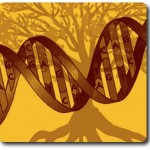
Mark your calendars for Sunday March 25 8pm EDT to watch the premier of “Finding Your Roots” with Henry Louis Gates, Jr.
Perhaps what makes “Finding Your Roots” one of the most interesting celebrity genealogy programs to date is the element of surprise as Gates escorts his guests through some shocking revelations in search of their ancestors.
Each episode features the genealogy of two or more celebrities. With the help of some leading American Genealogists, Family History experts and DNA samples. The show often links guests together in surprising ways using Autosomal DNA.
Scientists Joanna Mountain and Mike Macpherson of “23and Me” (genetics testing company) worked with “Finding Your Roots” to come up with some often-astonishing results. Proving relationships by degrees such as 3rd, 4th, 5th cousins (or more) is accomplished using the genetics company’s “Relative Finder” test.
This seasons 10 part series features a celebrity Line up of:
· Harry Connick Jr. and Branford Marsalis
· Cory Booker and John Lewis
· TV Personalities Barbera Walters and Geoffrey Canada
· Kevin Bacon and Kyra Sedgwick
· Angela Buchdahl, Rick Warren and Yasir Qadhi
· Samuel L. Jackson, Condoleezza Rice and Ruth Simmons
· Actors Maggie Gyllenhaal and Robert Downey, Jr.
· Sanjay Gupta, Margaret Cho and Martha Stewart
· John Legend, Wanda Sykes and Margarett Cooper
· Michelle Rodriguez, Adrian Grenier and Linda Chavez
Watch Preview on PBS. See more from Finding Your Roots.
Genealogy News: Accessible Archives
February 29, 2012 by ramona
Filed under Articles, Latest News
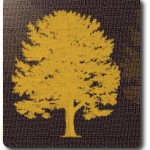 Accessible Archives has been a well-kept secret for far too long. The company founded in 1990 has made an impressive amount of archived information (at one time only offered through microfilm) available through computer technology.
Accessible Archives has been a well-kept secret for far too long. The company founded in 1990 has made an impressive amount of archived information (at one time only offered through microfilm) available through computer technology.
Accessible Archives has excellent search capacity that allows family history buffs to pinpoint very specific information that is then presented in digital format or through direct link.
Collections for Family History
This invaluable resource for genealogists contains mainly “PRIMARY SOURCE” materials! Filled with mostly US based content, Accessible Archives has a huge collection of newspapers and books from the 1700’s to 1800’s.
Some of the items in their collection that have the greatest genealogical value include:
- African American Newspapers
- Frederick Douglass’ Paper
- Freedom’s Journal
- Provincial Freeman (Canadian Publication)
- American County Histories to 1900
- Delaware and Maryland County Histories
Maine County Histories
New York County Histories
Vermont County Histories
- Delaware and Maryland County Histories
- The Civil War Collection
- Part I: A Newspaper Perspective
- Part II: The Soldiers’ Perspective
- Part III: The Generals’ Perspective
- Part IV: A Midwestern Perspective
- Part V: Iowa’s Perspective
- Part VI: Northeast Regimental Histories
Access for Genealogists
Access is available on a two-tier platform that includes institutions and individuals. For individual access, there is a yearly membership fee of $59.95 payable via internet by credit card, debit card or PayPal. However, before you sign up for Accessible Archives check with you local library, college or university as they may already have a membership.
In addition to Accessible Archives, amazing collection, the site hosts a news section, webinars and a blog filled with shared resources. Overall Genealogy Beginner gives Accessible Archives a very high rating as one of the best internet resources for family tree enthusiasts as well as historians.
Image Credit: Ramona Hartley
A Well-Kept Secret: The Internet Archives is an Amazing Resource for Genealogists
October 4, 2011 by ramona
Filed under Articles, General Tips, Getting Started in Genealogy, Introduction to Genealogy
 The Internet Archives is front-page news for all beginning genealogists and family historians. Internet Archives is taking a lesson from the lost library of Alexandria. Alleged to be the greatest repository of knowledge in the known world, the Great Library housed books written by the most renowned scholars and philosophers: but all that was lost when it burned to the ground. In collaboration with the Smithsonian and the Library of Congress, The Internet Archives is actively working to digitize and preserve written records for coming generations. This is great news for genealogists.
The Internet Archives is front-page news for all beginning genealogists and family historians. Internet Archives is taking a lesson from the lost library of Alexandria. Alleged to be the greatest repository of knowledge in the known world, the Great Library housed books written by the most renowned scholars and philosophers: but all that was lost when it burned to the ground. In collaboration with the Smithsonian and the Library of Congress, The Internet Archives is actively working to digitize and preserve written records for coming generations. This is great news for genealogists.
The archives has an ever expanding compilation of resources consisting of items from the National Library of Scotland, The University of Toronto and the Boston Public Library to name a few.
What you will find at the Internet Archives
Some major genealogical resources you can find on their site include Biographical documents, Vital Statistics and books on surname origins. Perhaps most significant to genealogy research is their collection of Old Parish Registers from Great Britain, Canada and the United States. Even better is the fact that accessing this information is easy and free.
How to access records
For beginning genealogists or those new to online research it may seem a little complicated at first. Do not be intimidated, it is actually effortless to get straight to the information you want in three simple steps.
Because Genealogy Beginner is here to help you, we have put together a little walk through to get you started, just click to Old Parish Registers and scroll to the Record of the parish list of deaths. 1785-1819 – Bentley, William, 1759-1819, Salem Mass.
Step one:
Click on Record of the parish list of deaths. 1785-1819 – Bentley, William, 1759-1819, Salem Mass. and it will take you to http://www.archive.org/details/recordofparishli00bent
Step two:
Click on “editable web page” at the bottom of the first text box and it will take you to “Open Library”
Step three:
Click “read online” at the top of the right hand column. Once you are here, you are ready to read. At the bottom of the page, you can use the page-turner icons or simply drag your mouse to select a specific page. The richness of genealogical information is astounding. For instance, on page 143 of this document you can find entry # 1087 that gives the following account:
“Nov.7. Margaret, widow of Benjamin Nurse. Fever, etc., 67 years. She was a Welcome in Daniels Street. Married at 26, and lived thirty years in married life. Her husband a baker. Left two children: eldest son in Boston. Her Brother Thomas married a Lambert. A sister Foye only one left. Daniels Street.”
Wrap up
In addition to the main collection, there are also sub collections that cover passenger lists, Military records and books from the Brigham Young University Family History Library. The Internet Archive is a wholly not-for-profit organization. It was founded for the sole purpose of building an internet library that offers unending access to historical collections for researchers, historians, genealogists and the public. The Internet Archives is a site that all genealogists need to bookmark.
SPECIAL PROGRAMS HIGHLIGHT NATIONAL ARCHIVES RECORDS IN OCTOBER
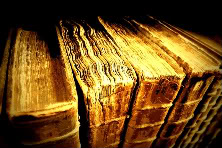
October at the National Archives sees a chain of programs that will be of great interest to genealogists. This series of programs – that are open to the public and free – will highlight records from its holdings.
Among the programs listed:
Introduction to Genealogy
This is the first of a series of monthly lectures that will cover basic genealogy research and researching techniques.
Access to Archival Databases (ADD) for Genealogists
This program introduces genealogists to the National Archives electronic records and will instruct attendees in their use through the (ADD) or Access to Archival Databases online resources.
Help! I’m Stuck
Will be a fantastic program for beginning Genealogists who are not sure where they should begin. This program addresses questions like “IS there a problem that has you stumped?” and “Would you like to explore new directions in your research?
For the dates and times of these programs or for additional information please visit:
http://www.archives.gov/dc-metro/know-your-records/
…
Where to Next?
Blank Family Tree with Step-by-Step Instructions
…
08-145
Medieval England – Soldier Database
June 1, 2008 by Chris
Filed under Genealogy Research Resources, Public Records, Sharing Genealogy Information
 This came through on the Genealogy Blog at GeneaNet today. It appears as if a research grant (from the Arts and Humanities Research Council) for around a half-million pounds was awarded to a couple academics in England. the overall idea is that they’ll use the money to challenge some assumptions about the emergence of professional soldiery in the 14th and 15th century.
This came through on the Genealogy Blog at GeneaNet today. It appears as if a research grant (from the Arts and Humanities Research Council) for around a half-million pounds was awarded to a couple academics in England. the overall idea is that they’ll use the money to challenge some assumptions about the emergence of professional soldiery in the 14th and 15th century.
The genealogy interest…?
“The project has an innovative methodological approach and will be producing an on-line search-able resource for public use of immense value and interest to genealogists as well as social, political and military historians. The project employs two Research Assistants over three years and also includes one Doctoral Research Studentship – all of whom began work on 1st October 2006. The whole team is working on a jointly authored book, conference papers, and articles.”
You can read the full article and get access to the pilot database at GeneaNet’s Blog posting on the matter.
…
…
Where to Next?
Blank Family Tree with Step-by-Step Instructions
…
